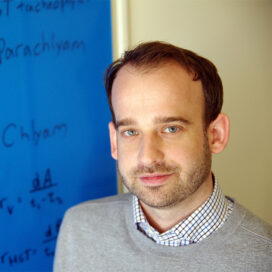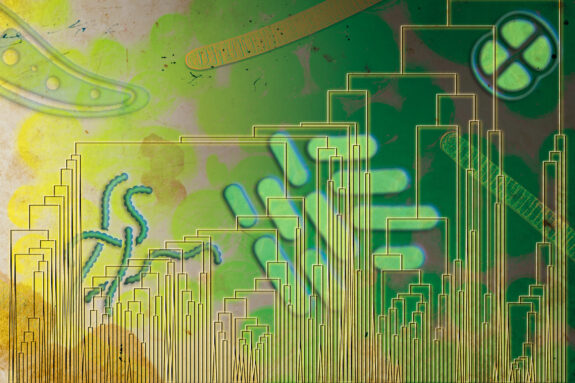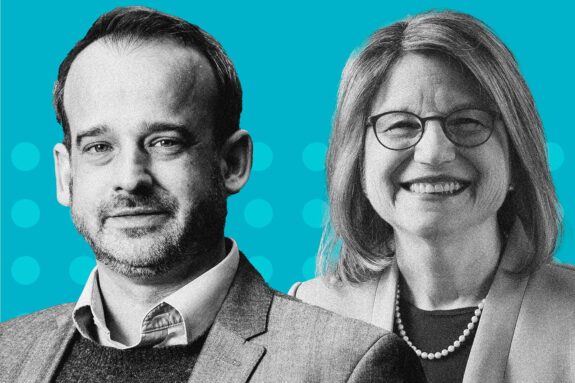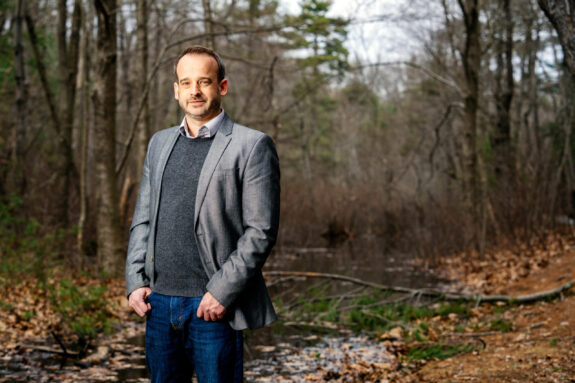
Evolutionary biologist studying the co-evolution of life and environments across deep time using microbial molecular phylogenetics.
Research Interests
My group uses microbial genomics to investigate the co-evolution of life with Earth’s environment and habitability. By studying the transfer of genes between lineages of various microbe groups, we can reconstruct their evolutionary history, including their physiologies, metabolisms, and when they branched off on the Tree of Life. Combining these histories with geochemical and fossil records, we test hypotheses for conditions of the continents, oceans, and atmospheres across deep time, and how modern ecosystems developed over time. The result is a much richer narrative of the history of our inhabited planet, with insights that can help us in the search for life on worlds beyond.
Topics I Investigate
- Origin and evolution of photosynthesis
- Horizontal gene transfer
- Microbial molecular clocks
- Evolution of microbial metabolisms
Biographic Sketch
Greg Fournier joined the EAPS faculty in 2014. After earning an AB in genetics from Dartmouth College, Fournier spent time as a research technician at Harvard Medical School/Mass General Hospital and at MIT in the Synthetic Biology Research Group in the Computer Science and Artificial Intelligence Laboratory (CSAIL). He went on to the University of Connecticut where he completed his PhD studies in genetics and genomics in 2009, staying on as a postdoctoral associate in the Department of Molecular and Cell Biology. Fournier returned to MIT in 2010 to pursue postdoctoral research, first as a NASA Astrobiology Institute Postdoctoral Fellow and then as a postdoctoral associate in the Department of Biological Engineering, before being appointed as an assistant professor in the Department of Earth, Atmospheric and Planetary Sciences.
The work we do looking at the evolution of microbes and genes and genomes over billions of years is not only new as a discipline, but it’s also still a place where you can really explore…you can discover something no one else has put together before.
Gregory Fournier
Key Awards & Honors
- 2023 • Fellow, Signatures of Life in the Universe Initiative, RSCA/Heising-Simons Foundation
- 2022 • MIT John W. Jarve Seed Fund Award for Science Innovation
- 2021 • Fellow, Signatures of Life in the Universe Initiative, RSCA/Heising-Simons Foundation
- 2016 • Simons Foundation: Life Sciences-Simons Collaboration on the Origins of Life Investigator Award
Key Publications
-
Zhang X, Paoletti MM, Izo G, Fournier GP, Summons RE. (2023) Late acquisition of the rTCA carbon fixation pathway by Chlorobi. Nature Ecology & Evolution. 7(9):1398-1407. doi: 10.1038/s41559-023-02147-0.
-
Capovilla G, Braakman R, Fournier GP, Hackl T, Schwartzman J, Lu X, Yelton A, Longnecker K, Soule MK, Thomas E, Swarr G, Mongera A, Payette J, Waldbauer J, Kujawinski EB, Cordero OX, Chisolm SW. (2023) Chitin utilization by marine picocyanobacterial and the evolution of a planktonic lifestyle. Proceedings of the National Academy of Sciences USA. 120(20):e2213271120. doi: 10/1073/pnas.2213271120.
-
Fournier GP, Moore KR, Bosak T, Payette J, Rangel LT. (2021) The Archean origin of oxygenic photosynthesis and extant cyanobacterial lineages. Proc Biol Sci. 288: 20210675. doi: 10.1098/rspb.2021.0675.


